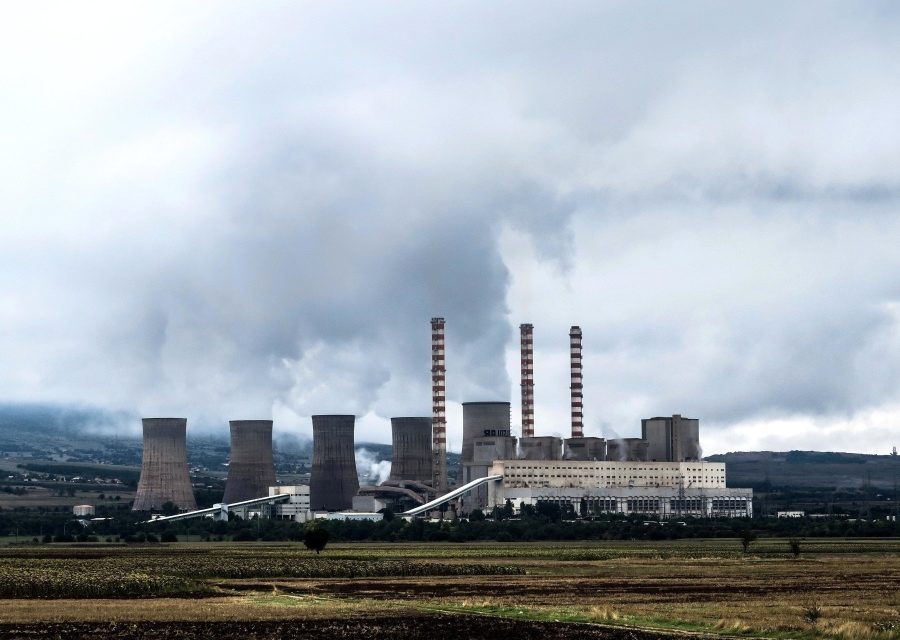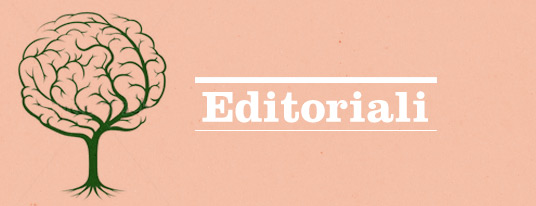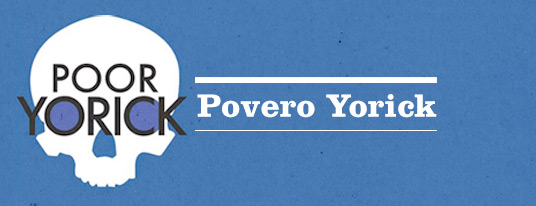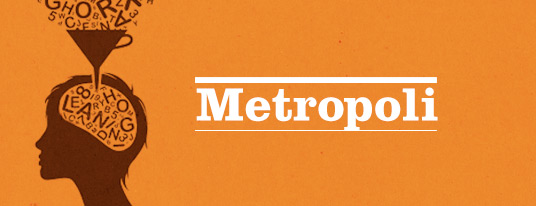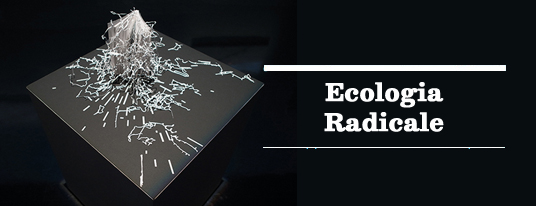Riprendiamo qui questa intervista di Nick Dyer-Witheford a Emanuele Leonardi pubblicata per projectpppr.
By NICK DYER-WITHEFORD and EMANUELE LEONARDI
Nick Dyer-Witheford: I have known you for many years, but readers of this website probably have not had that pleasure. So, to start, can you—in whatever way you feel is best—tell us a little about your intellectual and political formation, and the path that led you to “Autonomous Marxism and World Ecology”?
Emanuele Leonardi: My militant upbringing is linked to the alter-globalization cycle of struggle in Italy. I was part of a group which had solid links with the post-Autonomia scene (especially in Bologna and Turin), so I first encountered workerism as a tool to mobilize—there was no way, back in the early 2000s, you could “study” Silvia Federici, Antonio Negri or Mario Tronti in universities (I was actually shocked when I spent a year in England as an Erasmus student and realized I could write papers on such authors). On the contrary, ecological issues figured quite prominently in several syllabi, so I started to get more and more information about the critique of “development” and about environmental justice movements. So, I decided to write my MA thesis on the No TAV movement in Susa Valley (NW Italy)[1], and I was at the same time extremely energized by the involvement of the Askatasuna social centre in the struggle, and deeply disappointed about the lack of a solid articulation of the value-nature nexus in workerist analyses. Then, I decided to focus on that issue for my PhD and was lucky enough to get a scholarship at UWO in 2008 and to convince you to be my supervisor (I knew you would enjoy a dissertation on workerism as your High-Tech Proletariat was available in Italian in the journal Vis-à-Vis and I had read it, but I was unsure about your reaction to an ecology-based research project).
After the completion of my PhD in 2012 I got back to Europe and (re)discovered André Gorz’s ecological works from the 1970s; I thought his intellectual trajectory (from Existentialism to proto-Degrowth militancy, then from refusal of labor to the critique of cognitive capitalism) would be perfect to elaborate more in depth the evolving link between Autonomist Marxism and ecological thought in general. Again, I was very lucky to get a scholarship at the Centre for Social Studies of the University of Coimbra (Portugal), where I could develop my project under the supervision of Stefania Barca, who simultaneously gave me a lot of free space to inquire and tons of great hints (especially with regard to eco-feminism). So, in 2017 I was finally able to submit my book—in English it would be Labor Nature Value: André Gorz between Marxism and Degrowth— to the Italian publisher Orthotes.[2] The book was well-received, I had plenty of opportunities to discuss it within academic and militant circles[3], so in the last 2-3 years I was able to both go beyond some of its formulations and produce a number of follow-ups; one of those is this article for PPPR, which I originally wrote in early 2019.
NDW: The essay title may surprise many. Autonomist Marxism has, at least in the English-speaking world, not been strongly associated with ecological thought. Indeed, in its most influential enunciation—that of Antonio Negri and Michael Hardt (and indeed, it must incidentally be acknowledged, in some of my own work)—it has often been characterized by a decidedly Promethean stance towards techno-science and a pronounced “accelerationist” tendency. Does your work, and that of your comrades, mark a “green split” in autonomist, post-operaismo thought? Along similar lines, your theoretical articulation of two apparently conflicting ideas of crisis—as development and catastrophe—in “Autonomist Marxism and World Ecology” is impressive. However, the paper does not go very deeply into the issue of the concrete struggles which might be aligned by this dual rethinking of the “workerist” and “green” traditions. Can you give some indication of the projects you see issuing from, or at least consistent with, the theoretical confluence you propose?
EL: I wouldn’t refer to it as a “split”; it is, rather, a “re-discovery”. The move is somehow similar to the original gesture of workerism: getting back to Marx, but not to re-assert a putative orthodoxy; rather, to highlight the originality of the new way of problematizing Marx-as-an-archive. In the 1960s, the idea was to originally use Marx to make (political) sense of the rise of an unprecedented productive figure, that of the mass worker. For us, the idea is to originally use workerism to make (political) sense of the rise of ecology as an element of contemporary class composition.

The starting point has been a re-evaluation of the struggles against noxiousness in Italy (in all its complexity: workerists led in Porto Marghera/Venice under the banner of refusal of labor[4], but the left-wing of CGIL led in Turin, at FIAT, and their motto was liberation of work). The possibility to read workerism “ecologically” was there, already in the 1980s. However, the large majority in the area took for granted a sort of fundamental separation between class and ecological issues, so even in the best cases what militants proposed was the confluence of different conflicts within the anti-capitalist camp. That strategy produced interesting outcomes—for example, the anti-nuclear movement—but was eventually defeated by rising neoliberalism. Instead of questioning the separation, however, most observers ratified it as a given—think of the theory of ‘new social movements’, which neatly distinguished between class-based claims and identity-based claims (including environmental ones).
We thought a “workerist gesture” could prove useful to re-formulate the class-ecology link against the background of neoliberal hegemony and the spread of an anti-austerity cycle of struggle from 2011 onwards. One of the main points I wanted to make in the 2017 book was that In Italy, environmental issues became politicised through workers’ struggles, not in spite of them. Understanding the separation between labor and the environment as the result of a political defeat (hence neither a natural given nor a historical a priori) has been instrumental for posing the strategic question of struggle convergence in a way which is adequate to our present time. The challenge is to elaborate political frameworks that intimately connects different issues as being the consequences of capitalist violence: they are equal in their roots, and different in their surface; I am currently engaging with climate justice along these inquiry lines (more on this later). I have also worked to find common ground for discussion with World-Ecology. Others have taken different routes, while maintaining a similar approach: Maura Benegiamo has expanded the scope of the analysis to extractivism[5]; Lorenzo Feltrin has drawn a compelling line between the struggle against noxiousness in the 1970s and contemporary workers’ conflicts within the pandemic conjuncture[6]; Davide Gallo Lassere has engaged with Andreas Malm’s recent contributions through workerist lenses.[7] Moreover, comrades-scholars whose political identifications include but go beyond Autonomist Marxism have greatly contributed to our endeavor: there are many, but let me mention at the very least Stefania Barca[8] and Salvo Torre.[9]
Two final remarks: a) that this is a “re-discovery” rather than a “split” is testified, in my opinion, by the recent interest shown towards political ecology by Toni Negri[10] (even more so, I believe, since his argument develops through a critical engagement with André Gorz); b) my impression is that there is a generational element at play here: we are all under 40 and our political formation include ecological struggles as foundational moments (which is not at all the case for older comrades in the workerist area).
NDW: You stage an ecological encounter with the work of Mario Tronti. Would it be fair to say that this invites us to consider a movement from struggles in the factory not just to struggles in the “social factory”, but to struggles in a “planet factory”, conceived in the double sense of a global subsumption and terraforming of the earth by capital?
EL: Yes, I believe it would definitely be fair. Maybe “planet farm”—a term suggested by Rob Wallace[11]—would be more appropriate, as it more comprehensively captures the environmental dimension of contemporary exploitation (which goes beyond the industrial workplace). However, labels aside, what you suggest as a capitalist mix of global subsumption and terraforming of the earth is indeed what we should reflect upon. I have recently come across your essay “Struggles in the Planet Factory: Class Composition and Global Warming” (2018) and I fully follow your argument. What I would add to your periodization of climate governance (which ended with “US Reactionary Reversal” as embodied in the Trump’s administration’s early actions) is that the collapse of COP 24 in Katowice in 2018 was due not only to the rise of an outspoken denialist front within the UNFCCC (led by the US, as you rightly point out) but also—if not more importantly—to the withdrawal of big Environmental NGOs from their traditional role as “legitimacy providers”. The rise of Greta Thunberg as a global climate justice leader is a representation of this, I believe: big NGOs no longer implicitly ratify the COP system as it did not deliver its promises even after more than a decade of full implementation. All this is reversible, of course, and we’ll have a taste of what they intend to do in the upcoming COP 26, co-hosted by Scotland and Italy. Yet, it is important to stress that the double crack in late 2018—followed, in 2019, by the US retreat from the Paris Agreement and by the hugely impactful global climate strikes—implied a deep crisis of the green economy (and of its global warming translation: although climate change is widely considered to be a market failure, as this latter was unable to account for emissions as negative externalities, it can nonetheless be solved only by a further wave of marketization). Again, it is very difficult to say whether this idea—which has functioned as the economic pillar of climate governance since Kyoto (1997)—is dead or simply in a rough state, waiting to bounce back. What can be said, though, is that its elective affinity with austerity measures (see, for example, the European Union Green Deal) seems to be at odds with new strategies apparently more reliant on public investment (see, for example, the European Union Next Generation programme). Can state-based solutions (obviously still profit-oriented) be more effective in stabilizing the climate crisis? I believe this is the question that will affect the struggles in the planet factory in the foreseeable future. Elements to keep monitored are: the role of China and the new US administration, from a geopolitical perspective; the ability to draw a foundational line between class and climate issues, when it comes to bottom-up conflictual practices, all over the world.
NDW: Tronti was fascinated by the role of worker struggle in the class compromise of the US New Deal of the 1930s. How would you see a contemporary “workerism” standing in relation to Green New Deal proposals?
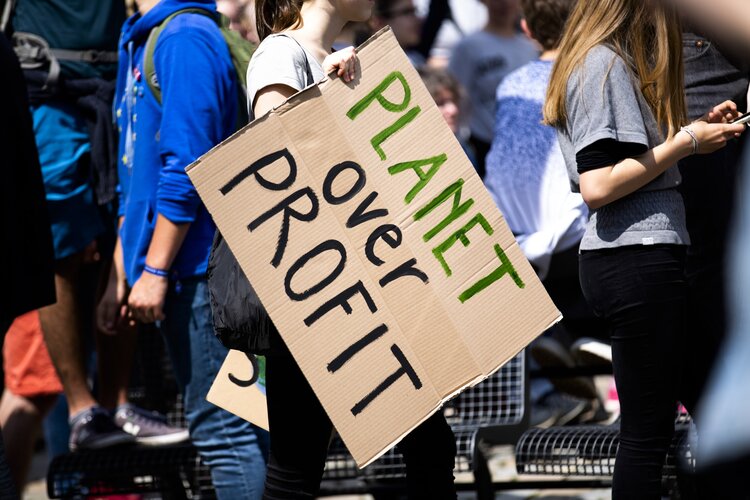
EL: I think I need more time to think through this important question to come up with a well-rounded answer. A few preliminary elements, however, seems pretty clear to me. First, if the original New Deal aimed at including the working class within its dynamics of development by severing its ties to the sphere of reproduction, the ambition of the Green New Deal is to include what Stefania Barca defines earthcare labor, or the forces of reproduction. In this sense, it is tough to identify both the putative avantgarde of the struggle (it seems the Indian farmers’ strike is more damaging to capital then traditional blue collars’ unrest) and the highest point of development (we may opt for AI or digital platforms, as accelerationists suggest, but we would completely miss the ecological perspective). A possible way out of this conundrum is to consider that the way valorization and the environment interact (let’s call it the value-nature nexus) has undergone a remarkable historical shift. The 1968-1973 cycle of struggle imposed a bifurcation within the value-nature nexus: whereas, before it, “nature” was perceived as infinite and free (“classical” value-nature nexus), after it, “nature” started to be seen also as a direct element of valorization (“new” value-nature nexus). It is important to stress that the “new” nexus does not substitute but rather supplement the “classical” one: this is why the internal conflict between “brown” and “green” capital is not an ideological smokescreen but a rather dire, actual battle. To go back to the GND issue, this way of framing the value-nature nexus has an important implication: when it comes to the “classical” one, the reduction of the throughput[12] appears as an absolute necessity; when it comes to the “new” one, the re-direction of reproductive labor (or, we may say, the liberation of its negentropic potential—or, with yet another formula, its de-commodification) seems to be the best option. In this way, the GND can be thought to account both degrowth-inspired positions (reduction of entropic activities) and accelerationist ones (re-designing of digital means of production beyond the profit-motive and private property relations).
A second interesting element, in my opinion, is the way the GND debate re-frames the triadic relationship amongst equality-environment-growth. To simplify a little, we can see its historical development as follows: a) the original New Deal—reacting to the 1917 October Revolution—established a link between growth and equality (a tendential one, to be sure, and predicated on the exclusion of the subjects of social reproduction—but that it was effective in a significant part of the world is beyond doubt); b) the collapse of Fordist regime (due to converging but very different pressures such as global struggles and neoliberal revolution from above) established a link between growth and (the promise of) environmental protection—this is the green economy framework which, after nearly two decades of implementation, has shown an irreparable contradiction between (supposed) ecological goals and (actual) economic means; c) the deep crisis of the UN-led climate governance (2018-2019) has polarized the political field in such a way that outspoken denialism now confronts in a rather direct way an option based on climate justice: the former would entail a focus on growth at the expenses of both equality and environmental protection; the latter would open up the political space to envision a strong link between equality and ecology at the expenses of growth. In a way, I think this is what class struggle may look like in the near future—although a post-austerity stabilization is still possible (after all, it may be the contemporary form of the class compromise Tronti talked about).
NDW: Let us conclude with the pandemic question. Your work is unfolding at the very epicenter of one of the worst European sites of the Covid 19 catastrophe, in Northern Italy. Alongside the daily business of survival and persistence, is this in any way reconfiguring the line of thought you open in this essay?
EL: Definitely. Before elaborating on this, though, let me just say that the reflection in the essay was already deeply embedded in a political process: in 2018 a group of comrades who worked on political ecology literally lived like “preachers”, jumping from one train to another to meet young militants and socialize class-based readings of the ecological crisis and global warming. I was part of that group: at the time, we could detect a certain interest in our audiences, but not much action followed. One of the key moments of this attempt to “ecologize” the antagonist scene in Italy (not only its workerist part) was Jason Moore’s “tour” in June 2018. For nine days we traveled from South to North and he gave several talks (both in universities and in social centres). The idea to “bridge” AM and WE developed in that context.
As always, however, good ideas by themselves don’t change much. It’s important to have them ready, though, when something unexpected happens. In fact, the leap in terms of grassroots organizing occurred in 2019, when the first collectives of Political Ecology emerged (in Milan and Turin)[13] and the first Climate Camp was conceived and eventually hold (in Venice). These processes immediately encountered the climate strikes (especially the first and third were huge in Italy) and played a key role in the progressive radicalization of movements such as FFF (the outcome of their second national assembly, in October 2019, in Naples, is a truly amazing document)[14] and Extinction Rebellion.[15] The pandemic should be framed against this background: in Northern Italy the schools were closed on February 24 2020, the day after a very successful national encounter of the Ecologia Politica Network that had planned several activities to organize what should have been the fifth global strike (in theory, April 24 2020). Covid-19 has been a disaster from every possible perspective: in particular, we were confident we could have intensified the convergence with a number of unions (mostly, but not only, rank-and-file), but of course we never got to actually find out.
In this extremely disappointing context, we decided that it was important to elaborate and spread an ecological analysis of the capitalist aetiology of the pandemic. The Political Ecology Network was the first to translate Rob Wallace’s essays and interviews[16]—plus other key materials, like Adam Tooze’s article of the link between the Anthropocene and economic crisis.[17] Moreover, we organized a series of very successful webinars, titled “Health First! Pandemic: Symptoms a Global Ecological Crisis”.[18] Finally—and most importantly in terms of Covid-induced reconfiguration of militant research—we started to re-think climate justice as a unitary political framework for a comprehensive interpretation of the three frontlines of struggles that emerged in Italy within the first wave of pandemic conjuncture: workers’ health, precarious’ income and mutual aid. As for workers’ insubordination, it represented the most original and unexpected moment of this phase. When Italian Prime Minister Conte said “everything will be closed except the factories”, the workers’ response was determined in claiming health over profit as a social priority. The strike on March 25 forced all social actors to position themselves first of all along that political divide, and obviously those who refer to political ecology had no hesitation in siding with the workers’ point of view. We helped diffusing union’s perspectives which detected a significant overlapping between maps of contagion and maps of exploitation (particularly important, at this regard, was the contribution of the rank-and-file union SI Cobas). What we added was an ecological critique of extended value chains and just-in-time, and a political argument according to which increased workers’ power over health management in the workplace is to be regarded as a climate justice pre-requisite for the much-hyped Just Transition to be effectively implemented. For example, when Germany outlawed subcontracting in the meat sector (December 2020)[19], we were quite convincing—I believe—in showing the positive ecological and social implications of such a move.

The second frontline concerned the precarious’ point of view: the campaigns for the “quarantine” income, or the extension of existing programmes towards an actual basic income or, again, calls for a “care” income. We tried to point out the ecological dimension of basic income: such a measure, in fact, would disarticulate the productivist nexus between economic growth and full employment that had been at the very heart of the social inclusion mechanism typical of the Fordist period. Here, important scenarios open up when one considers that the pandemic simultaneously calls for a full mobilization of “reproductive” work and for a significant de-mobilization of industrial labor (especially that which facilitates the circulation of pathogens). Once again, the protagonist here is social reproduction, and the terrain of struggle is welfare.
Third, mutual aid: already in March many experiences arose to tackle situations of social distress, which were and still are widespread.[20] Such initiatives greatly vary (mostly depending on the relationship with different municipalities: some are supportive, others indifferent, a few disappointingly obstructive), but all of them, at least when the Ecologia Political Network is involved, rely on a close relationship with local suppliers who respect both the land and the workers who cultivate it. Here in Parma, with the comrades of Potere al Popolo! (a Left-wing party) we organized a Popular Support[21], which started in April and is still active. The main idea is therefore to shorten the supply chain through food sovereignty, to support situations where decent working conditions are in place, and to foster self-organizing as an effective response to the pandemic crisis. With regard to Northern Italy, Tania Rispoli an Miriam Tola have talked about the rise of a feminist logistics[22]: I believe that’s the best definition one can find, and that the implications for climate justice are no less than fundamental.
In the summer of 2020, between the first and the second wave, we were able to organize two important moments of collective elaboration: the Ecologia Politica Camp in Susa Valley (late July) and the second Climate Camp in Marghera (early September), where the platform Rise Up for Climate Justice was launched.[23] It’s function is to support mobilizations and direct actions; we hope to be able to organize an effective struggle around the Pre-COP 26 + the UN Youth Event, which are scheduled for late September in Milan. Meanwhile, we keep in motion the process of militant research: in the coming months we are planning a moment of internal discussion (dedicated to “ecological workerism”), and a more general reflection, aimed at the climate justice movement as a whole, concerning a political critique of the COP-system, from its origins to its current form.
Notes
[1] https://www.tandfonline.com/toc/rcns20/24/2?nav=tocList
[2] https://politicalecologynetwork.org/2018/04/12/radicalizing-the-ecological-transition-reflections-on-lavoro-natura-valore-andre-gorz-tra-marxismo-e-decrescita-by-emanuele-leonardi/.
[3] From an academic perspective, a great space for discussion is POE (Politics, Ontologies, Ecology), a research group co-ordinated by Luigi Pellizzoni (poeweb.eu). From a militant point of view, the Neaples-based platform Ecologie Politiche del Presente (https://www.ecologiepolitiche.com/) is quite simply invaluable. Equally important has been the ‘Political Ecology’ box of the website Effimera (http://effimera.org/categoria/ecologia-politica/), launched in 2015 and co-ordinated by Alice Dal Gobbo and myself. In-between the two spheres, the monthly series ‘Ecologie della Trasformazione’ – which I run on the literary blog Le parole e le cose (http://www.leparoleelecose.it/?tag=ecologie-della-trasformazione) – has been instrumental to spread our reflections beyond the usual niches.
[4] I know the established English translation of “rifiuto del lavoro” is “refusal of work”, but I prefer “refusal of labor” as in my interpretation what was being refused was the capitalist organization of work through the wage-form, not so much “work” as a generic transformative practice, as an anthropological filter between society and nature. Similarly, CGIL leaders such as Bruno Trentin aimed at liberating this kind of work, not necessarily (waged) labor. However, this does not mean the two perspectives can easily converge: for the workerists, the wage-form is a fundamental barrier to emancipation, and as such labor should be immediately refused; for the left-wing unionists, the wage-form is a terrain of contention and social improvement is attainable within it, at least to a certain extent. In any case, this is not a merely historiographic debate: to properly grasp potentialities and limits of contemporary union strategies such as the Just Transition one must look to this friction and look for a solution (or at least a “smoothing”) of it.
[5] https://www.sinpermiso.info/textos/territorios-extractivos-y-la-politica-de-los-muertos-vivientes-el-desarrollo-capitalista-en-la-era.
[6] https://roarmag.org/essays/workerist-environmentalism/.
[7] http://www.contretemps.eu/capitalisme-ecologie-climat-anthropocene-ecosocialisme/.
[8] https://www.cambridge.org/core/elements/forces-of-reproduction/BE9B0DBDC89593F3284FE3F51D3B0418.
[9] http://www.leparoleelecose.it/?p=39135.
[10] https://www.euronomade.info/?p=14065.
[11] https://newint.org/immersive/2021/01/06/planet-fjf-farm.
[12] The quantity of materials and energy which traverses the economic system.
[13] At the moment there are a dozen collectives of the Ecologia Politica Network, distributed all over Italy.
[14] https://fridaysforfutureitalia.it/report-2-assemblea-nazionale/.
[15] https://isolenellarete.wordpress.com/2021/02/17/intervista-a-ecologia-politica/?fbclid=IwAR0H5vCm1Aziy8H0RawPwEspBWEx_SqBbsMO3rAIBuQwSwDcpSWlb-tBYMs.
[16] To be fair, we were not alone: also the comrades of Pungolo Rosso did a great job in spreading such analyses (see for example https://pungolorosso.wordpress.com/2020/04/09/covid-19-e-le-spire-del-capitale-di-rob-wallace-a-liebman-l-f-chaves-rodrick-wallace/).
[17] https://www.theguardian.com/books/2020/may/07/we-are-living-through-the-first-economic-crisis-of-the-anthropocene.
[18] See: https://www.youtube.com/channel/UCr9bVNqglajTBRmQ1l5ulnA. A free e-book with all interventions will be published in the Spring.
[19] https://www.business-humanrights.org/en/latest-news/germany-new-law-ends-subcontracting-in-pandemic-stricken-meat-industry/.
[20] The documentary ‘Non ci vede nessuno: la società della cura’ [Nobody Sees Us: The Society of Care] neatly describes some of these experiences.
[21] https://voladora.noblogs.org/post/2020/05/23/supporto-popolare-a-parma-un-bilancio-provvisorio-e-qualche-idea-per-proseguire/.
[22] https://www.jstor.org/stable/10.15767/feministstudies.46.3.0663?seq=1.
[23] https://www.globalproject.info/it/in_movimento/nasce-rise-up-4-climate-justice/23015.

